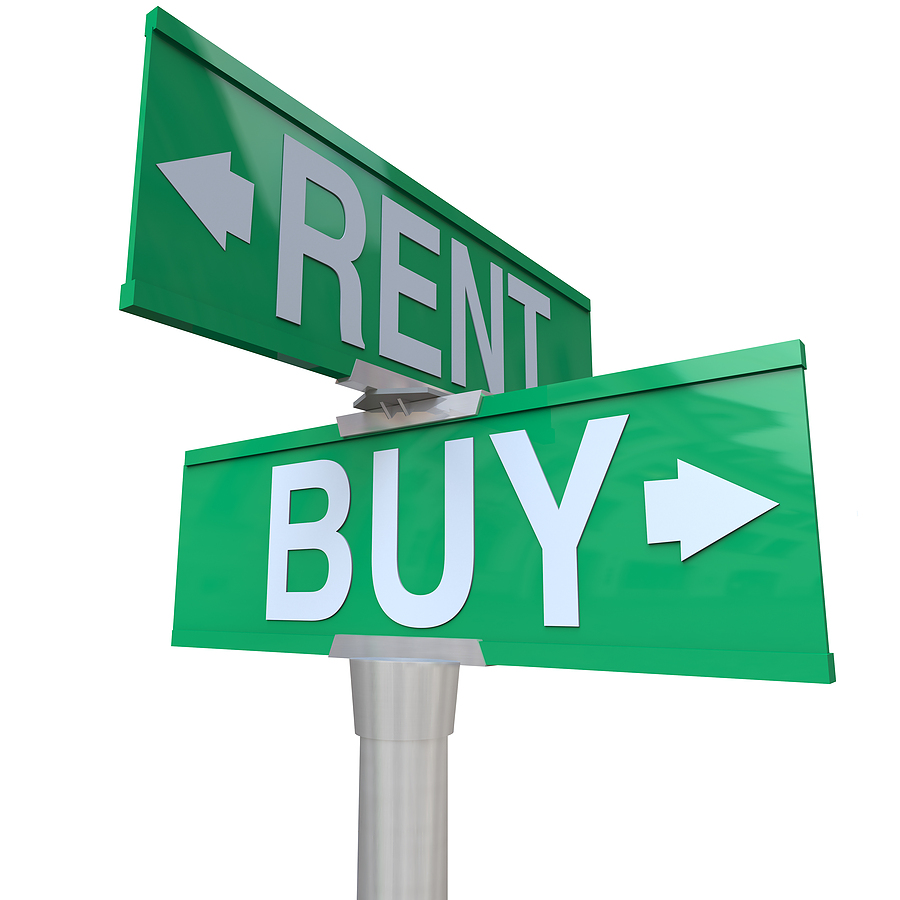As a result of the extended decline in home prices and mortgage interest rates, it would appear that, as of the 4th quarter of 2012, owning a home is 33% cheaper than renting a home. So “logically” one would assume that home prices “should” rise to catch up with rents and that is probably what is behind the increase in home prices over the last year. (chicagonow.com)

But once I settled into my first “real” job I figured out that renting was like flushing money down the drain. From a purely “numbers” point of view buying makes more sense than renting. But it might not be for everyone.
Rent vs. Buy
The decision to rent or buy a home is very personal. There’s a strong emotional component as I mentioned, some people want the security of homeownership and others want the uncommitted freedom of renting.
There are personal and financial factors involved when it comes to making the decision of purchasing a home.
- Is it really cheaper to buy than to rent? — With a 20% down payment, a 30-year fixed mortgage rate at 3.5% and at the 25% federal tax bracket, homeownership is cheaper than renting in all of the 100 largest metros by a wide margin. (Huffington Post) There is no market where the financial decision is even close, so long as you plan to stay in the home for at least seven years, get 3.5% mortgage, and itemize your tax deductions. However, how much cheaper it is to buy a home than to rent really depends a LOT on where you live.Buying is 24% cheaper than renting in Honolulu, 28% cheaper in San Francisco, and 31% cheaper in New York. On the other end of the spectrum, homeownership is extremely affordable in Detroit, where buying a home is 70% cheaper to buy than to rent and 63% cheaper in both Oklahoma City and Gary IN. Check out the top 10 lists below to see where the cost differences between buying and renting are smallest and largest.
- Here to stay? — If you’re planning to move within a few years, you might not want to acquire the costs of buying a home. But if you intend to stick around, buying can make more sense. If you’re going to stay in a community where you want to raise a family and where you plan on being for your entire working career and then some, home ownership makes sense. Still, the decision should be a personal one.
- Can you cut it? — Ever since the housing market collapse, the guidelines for lending have changed, tightened if you will. The days of getting a 105% mortgage with just a signature are gone. We are back to the way it used to be, or should be, in that you have to have some money to put down, you need verifiable income and you have to have decent credit. If you are missing any of these items, that doesn’t mean you can’t buy a house, but it is going to be difficult.
- Are you really ready? — Many people enjoy taking care their homes, but home repairs, landscaping and the random improvements are costly and time-consuming. A lot of people buy fixer-upper homes that they think are good values, only to realize later that they don’t have the time or money to fix it up. You need to be very honest with yourself about whether or not you can handle those things, and how much time and money it will take.
Once you consider these factors, it should be easier to make a wise decision about whether to rent or buy.




